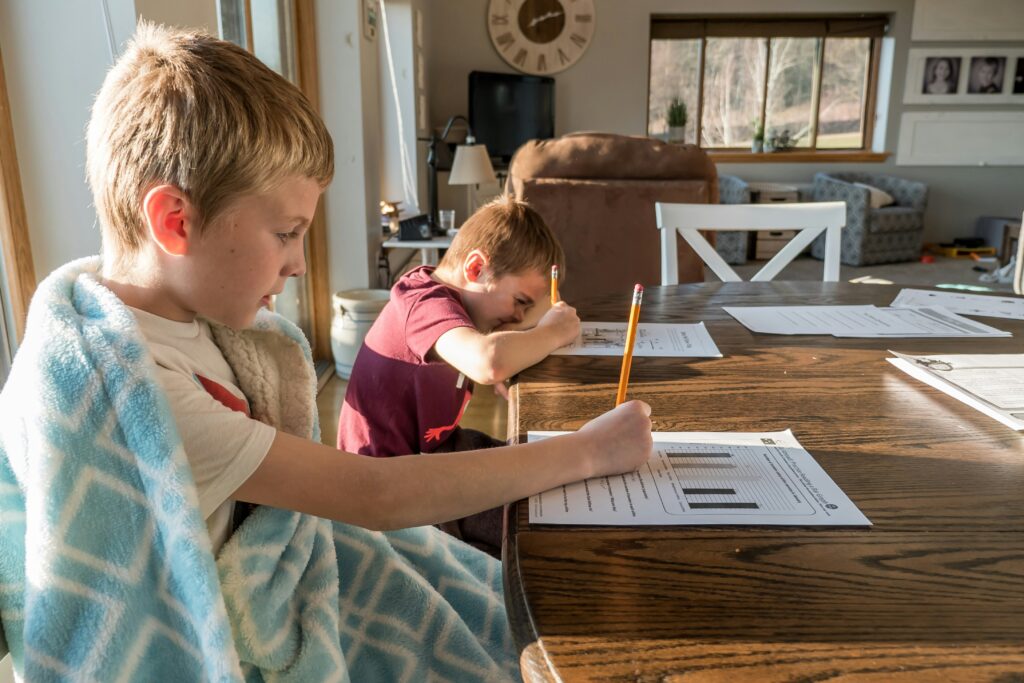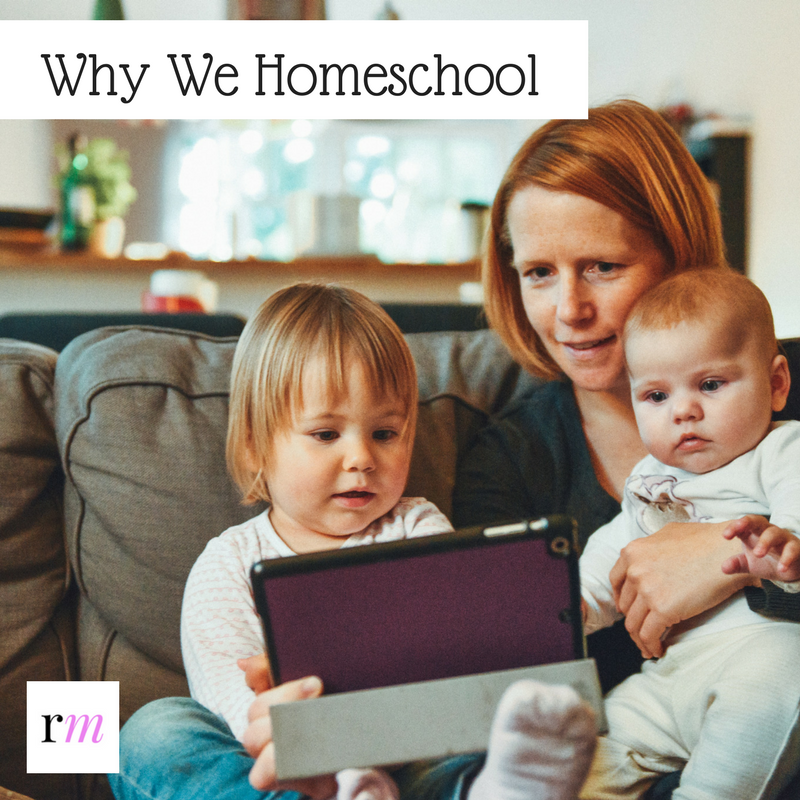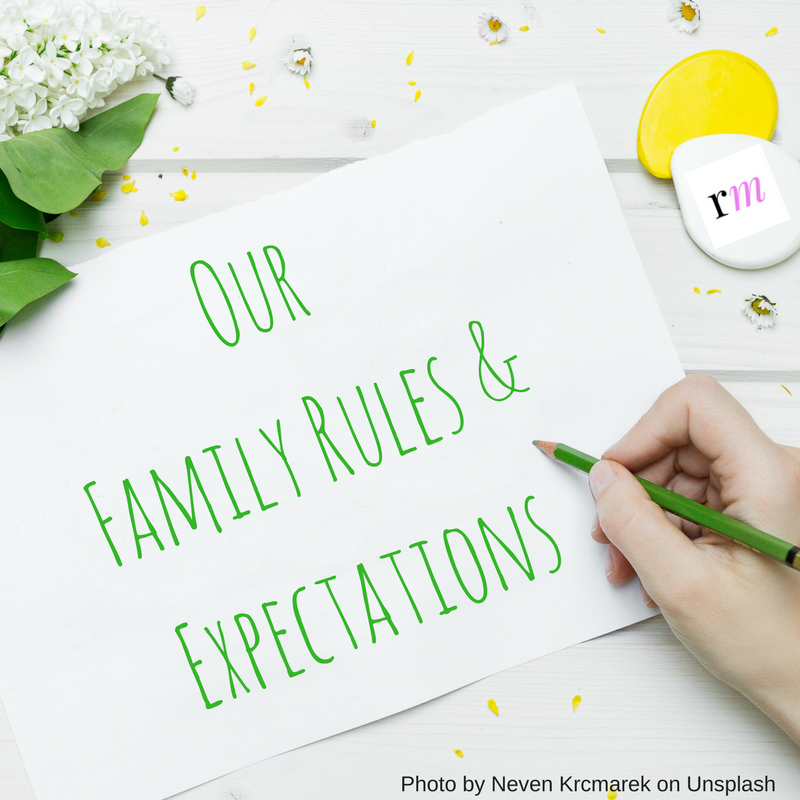
Have you ever considered homeschooling but thought it sounded too hard? Maybe you’re worried that you don’t have enough money, or you’re not smart enough, or you’re not a good enough mom. It’s overwhelming to think about taking over such a crucial part of your children’s development. But should it be? I’ve been homeschooling my kids since 2011, and I’m here to tell you that it’s not as hard as you’re afraid it will be. In fact, it’s probably nothing like what you’re imagining right now, especially if you or your kids have attended a “normal” school. You already are your children’s first and most important teacher – did you know that? Keep reading, and I’ll give you some key resources and advice to help you explore homeschooling and consider how it could work for your family.
I don’t have a degree. Can I still homeschool my kids?
Yes! You can absolutely homeschool your kids without a degree. Homeschooling laws differ by state, but there are currently NO states in the U.S. that require homeschool parents to have any kind of specialized degree (some do require a high school diploma). Take a look at the Home School Legal Defense Association’s (HSLDA’s) website at hslda.org/legal and choose your state to view the homeschool regulations that will apply to you. You might be surprised to find that most states have no or low regulations for homeschooling. In Iowa, where I live, you can even choose not to report anything about your homeschool at all to the school district or the state.
But if I’m not a teacher, how will I teach?
So, how can you teach your kids if you aren’t a trained teacher? Well, first of all, think about all of the skills and practical information you’re already taught them. Potty training, table manners, how to clean up their rooms, how to care for pets, grooming and hygiene, the alphabet, colors, numbers, shapes, prayers…most of what your kids know, they learned outside of school, and most of it they learned directly from you. Secondly, consider what teachers actually learn in college. Much of it is about how to manage a classroom, which is completely irrelevant to what you’ll be doing at home, even if you have a large family. I’m not a teacher; I’m just your average mom, and I’ve found that I can fairly easily teach any subject to my kids until they’re old enough to do most of their studies independently (around 8th or 9th grade). Most moms are afraid of math and science, but you have to remember that whatever program or curriculum you choose will have a teacher’s guide or other resources that lead you thorough it. Anything I haven’t been able to answer, I’ve been able to help my kids figure out one way or another. Teachers don’t know everything; you don’t need to know everything either.
If you’re still worried, take a look at nheri.org, the National Home Education Research Institute. According to NHERI, whether homeschool parents were ever certified teachers is not notably related to their children’s academic achievement. Also, homeschool students score above average on achievement tests regardless of their parents’ level of formal education.
I don’t have a ton of money. Can I still homeschool my kids?
The short answer to this is, yes! You can homeschool on just about any budget. However, almost every family who chooses to homeschool is going to have to make some adjustments to their lifestyle. Going from a two-income family to a one-income family can be a pretty dramatic change, but if you’re convinced that what you’re doing is best for your family, you’ll be motivated – and even excited – by the challenge. And, you don’t necessarily need to quit your job. You can continue to work and still homeschool your kids.
How to structure (or not structure) your school day
An obstacle for many families is thinking that your homeschool day has to mirror a typical school day – 8 or 9 hours at a desk, 5 days a week, being lectured by a teacher. It doesn’t have to be that way. There are creative ways to homeschool your kids if you need to keep working full or part time. Your state may have rules about how many school days or hours you complete, or it may not. If it does, there are so many activities at home that are truly educational (baking cookies as science, for example), that you should never feel tied to a desk for hours and hours every day. Your kids can read books on a blanket in the yard. They can play math games with each other. You can go to museums, zoos, parks, and plays. You can go on walks and study the trees, the bugs, and the sky. You can teach them how to knit, or fly a kite, or catch a fish. Your homeschool won’t look like school, and it won’t look like any other homeschool; it will be unique to you and the needs of your family. I know single working moms who homeschool. I know families who homeschool from an RV while traveling across the country. I know families who unschool – meaning they don’t do any formal teaching at all. The amount of time my kids spend sitting down with a textbook or worksheets is less than 2 hours a day, which gives us a ton of flexibility with our daily and weekly schedule.
How to budget and live on less
If you’re worried about your income, take a look at your current spending and see what you think you could cut out. If you need to dig into the details, try a budgeting app like the EveryDollar Budget App at ramseysolutions.com to track your spending or to create a sample budget on a lower income. When I first dove into my credit card and bank statements, I found several easy ways to cut spending – subscriptions I had forgotten about, for example.
If cutting out the easy stuff doesn’t bring your spending down enough, think about the big items: Can you live with one vehicle? Move to a smaller house or cheaper neighborhood? Skip a vacation or two? Stop eating out? What are you willing to sacrifice to make homeschooling a reality for your family? I have a couple of blog posts on living on one income that you might find helpful as you try to answer those questions: Living on One Income, Part I and Living on One Income, Part II.
How to save money on curriculum
As far as curriculum goes, you can find a lot of free and very low-cost materials online or at your local library. My favorite free online resource is Easy Peasy All-In-One Homeschool at https://allinonehomeschool.com/. They have every grade and every subject, all online and completely free. We used it for a year or two, and one feature I really liked was the built-in checklist so each child could keep track of his or her progress. I find a lot of elementary and pre-school books at our local thrift store for 30 cents apiece. Once you connect with homeschoolers in your area, you’ll find that most of them are happy to share books and resources with you. For the cost of what I would typically spend on back-to-school clothes and supplies ($200 or so per child), I could easily purchase all of my homeschool materials for the year.
I don’t know if I could spend that much time with my kids. Can I still homeschool?
One of the biggest reasons I wanted to homeschool is that I was sick of only getting to spend my “leftover” time with my kids. The only time we really had together was the mad rush to get ready in the morning and the mad rush to get dinner and activities and chores done in the evening. Weekends were a blur of errands and activities and cleaning. Everything seemed like chaos all the time, and we were all cranky and exhausted when we were together. There were plenty of days when my kids seemed like more of an irritation than a blessing (and I’m sure they felt the same about me). I knew that I was doing something wrong when I started to dread our time together.
Part of the lifestyle shift you make when you homeschool is that you’re not living at that pace or in that routine anymore. You have time to enjoy each other. Time to really get to know each other and be totally unproductive and silly together. In the homeschooling world, there’s a name for the adjustment to this slower pace of life: deschooling. It can take a long time (months, even) to deschool yourself and your kids, but if you’re patient, you’ll start to notice that your time together is less frustrating and maybe even…enjoyable. My relationship with my kids is my number one homeschooling priority – not math, not test scores, not getting them into the Ivy League. Now, our relationships are NOT perfect; we still annoy each other and argue and need time to ourselves…but getting to know my kids on a deeper level has been by far the most rewarding part of homeschooling.
Where do I start?
If you’re ready to learn more about homeschooling, a great place to start is with your state’s homeschool organization. You can find links to your state at HSDLA’s website: https://hslda.org/post/state-homeschool-organizations. Your state organization can answer your questions and connect you with a homeschool group in your area. The number one factor in the success of your homeschool the first few years is the support network you have behind you. It’s important to get to know other homeschool families, not just for the sake of “socializing” your kids, but for yourself and your sanity.
You don’t have to be a teacher to homeschool. You don’t have to be SuperMom. You don’t have to have a lot of money, or a certain type of personality, or a certain type of kids. All you need is the desire and a little bit of planning. You can do it!
If you have any questions, or if you’d like to share something helpful for new and potential homeschoolers, please leave a comment!


